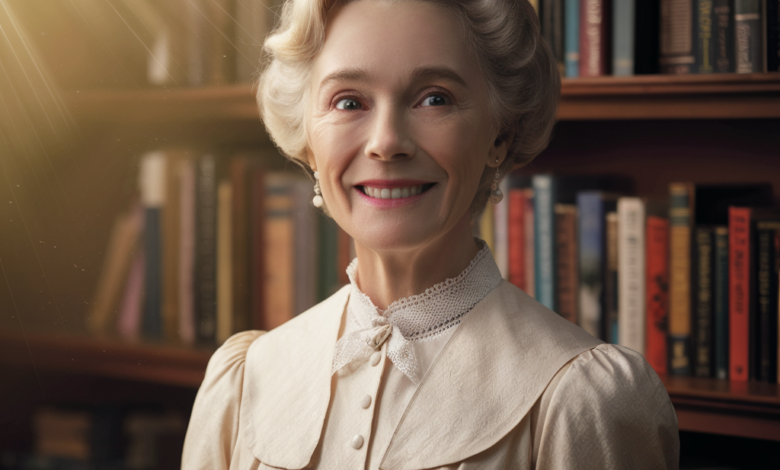Elizabeth Ann Weber: The Businesswoman Behind the Seinfeld Legacy

Introduction
Elizabeth Ann Weber may not be a household name, but her influence on one of television’s most iconic sitcoms is undeniable. As the first wife of comedian and Seinfeld co-creator Larry David, Weber played a pivotal yet often overlooked role in shaping the early trajectory of the show that would redefine comedy in the 1990s. Beyond her connection to David, she is a successful businesswoman in her own right, with a career spanning talent management, television production, and entrepreneurship. This article explores Weber’s professional journey, her contributions to Seinfeld, her life after her high-profile divorce, and how she carved out her own identity separate from the shadow of fame.
Early Life and Career Beginnings
Elizabeth Ann Weber’s early years laid the foundation for her future in the entertainment industry. Though details about her upbringing remain private, her career path suggests a sharp business acumen and an innate understanding of creative talent. Before her association with Larry David, Weber worked in talent management, where she developed skills in negotiating contracts, identifying promising artists, and navigating the competitive landscape of Hollywood. This experience would later prove invaluable when she became involved in the early stages of Seinfeld, offering behind-the-scenes guidance that helped shape the show’s unique voice. Her ability to balance creative instincts with business savvy set her apart in an industry often dominated by either one or the other.
Marriage to Larry David and Influence on Seinfeld
Weber’s marriage to Larry David in the 1980s coincided with a critical period in his career—just before Seinfeld transformed from an experimental concept into a cultural phenomenon. While David and Jerry Seinfeld are rightfully credited as the show’s masterminds, Weber’s contributions, though less documented, were significant. Reports suggest she played a role in early business decisions, including negotiations with NBC, and even influenced certain character dynamics. Some speculate that her no-nonsense, pragmatic personality may have indirectly inspired aspects of the show’s famously blunt humor. However, as Seinfeld skyrocketed in popularity, the pressures of fame and creative differences reportedly strained their marriage, leading to their divorce in the early 1990s—just as the show was cementing its place in TV history.
Life After Divorce: Reinvention and Entrepreneurship
Following her split from Larry David, Elizabeth Ann Weber didn’t retreat from the entertainment world—she reinvented herself. Leveraging her industry experience, she transitioned into television production, where she worked on various projects away from the Seinfeld spotlight. Later, she shifted her focus to entrepreneurship, demonstrating the same business instincts that had served her earlier in her career. While she has maintained a low profile compared to her ex-husband, her professional resilience speaks volumes about her independence and determination. Unlike many ex-spouses of celebrities who remain defined by their past relationships, Weber built a career on her own terms, proving that her success wasn’t contingent on her marital history.
Legacy and Lasting Impact
Though Elizabeth Ann Weber’s name isn’t as widely recognized as Larry David’s, her behind-the-scenes influence on Seinfeld and her subsequent career achievements underscore her significance in entertainment history. Her story is one of quiet power—a reminder that many of Hollywood’s most successful ventures rely not just on the stars in front of the camera but also on the astute professionals working behind it. Weber’s ability to navigate both the creative and business sides of television, all while maintaining her privacy, sets her apart in an industry that often prioritizes visibility over substance.
Conclusion: The Unsung Architect of Comedy History
Elizabeth Ann Weber’s journey is a testament to the often-unseen forces that shape cultural landmarks. While Seinfeld remains Larry David’s legacy, Weber’s early contributions and her ability to forge her own path afterward highlight a different kind of success—one defined by intelligence, adaptability, and quiet perseverance. In an era where celebrity exes often become tabloid fixtures, Weber’s choice to remain out of the limelight while continuing to work in the industry she helped influence is both refreshing and inspiring. Her story serves as a reminder that behind many great comedians, there’s often an equally sharp mind ensuring the laughter makes it to the screen.



